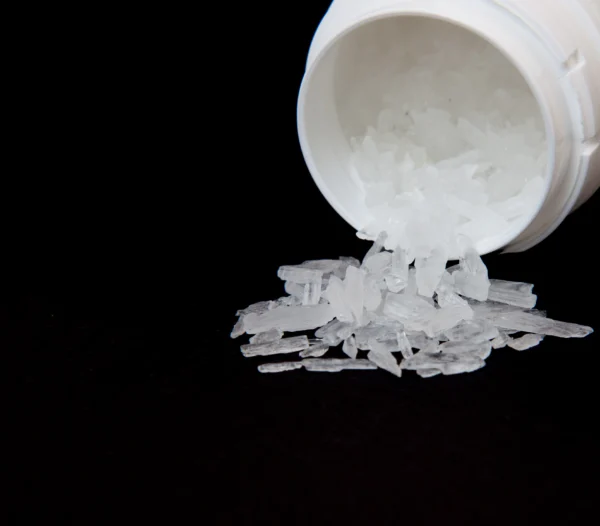- Understanding How Meth Impacts the Body
- Meth Detection in Blood, Urine, and Hair
- Factors That Affect How Long Meth Remains in Your System
- The Meth Detox Process
- How Long Does Meth Stay in Your System? Breaking Down Detection Times
- Tips for Detoxing Safely
- The Road to Recovery: Moving Beyond Meth
- Why Choose 911 Detox for Meth Addiction Treatment?
- Conclusion
Methamphetamine, commonly known as meth, is a powerful stimulant that impacts the central nervous system, with effects that can be both immediate and long-lasting. Understanding how long meth stays in your system is essential for anyone looking to detox, seek medical help, or simply understand the lasting impact of this substance. This complete guide will cover how long meth stays in your system, the various methods of detection, and ways to support the detox process. Here’s everything you need to know about meth’s timeline in the body and what affects it.
Understanding How Meth Impacts the Body
Meth works by increasing dopamine levels, a neurotransmitter associated with pleasure and reward. This creates a rapid sense of euphoria, but also leads to highly addictive behaviors. The way meth is processed and its lingering presence in the system depend on several factors, including the method of ingestion, the dosage, individual metabolism, and the user’s overall health.
When answering “how long does meth stay in your system,” it’s also crucial to recognize that meth can stay in different parts of the body for various lengths of time. Meth has a half-life of about 10-12 hours, which means it can linger well after its immediate effects have worn off.
Meth Detection in Blood, Urine, and Hair
The primary methods for detecting meth in the body are blood, urine, and hair tests. Each method has a unique detection window, with some more suitable for determining recent use and others for long-term tracking
1. Blood
Blood tests can detect meth shortly after use, typically up to 1-3 days, depending on the frequency and dosage. If someone is asking “how long does meth stay in your blood,” the answer generally falls within this short window, as meth dissipates from the bloodstream relatively quickly compared to other areas.
2. Urine
Urine testing is the most common method for meth detection and is frequently used for drug screenings. In general, meth can be detected in urine for up to 3-7 days after the last use. This detection window can vary, especially for chronic users, as meth accumulates in the system with frequent use. For most individuals, though, after about a week, the meth levels in urine have usually dropped below detectable levels.
3. Hair
Hair tests offer the longest detection period for meth, able to identify drug use for up to 90 days or more after the last use. While this method is rarely used for immediate detection, it provides valuable insight into patterns of use and is often used in more comprehensive testing scenarios.
Factors That Affect How Long Meth Remains in Your System
Many factors affect how long meth stays in your system. These include:
- Metabolism: People with faster metabolisms tend to process and eliminate meth more quickly. Age, activity level, and genetic makeup all play a role in metabolic rate.
- Frequency of Use: Regular meth users will have a higher concentration of meth in their system than occasional users. Chronic meth use often results in extended detection times in the body due to the accumulation of the drug over time.
- Dosage: Higher doses take longer to leave the system. If an individual has used meth in large amounts, it will likely remain in their body longer than someone who used a smaller dose.
- Hydration and Health: A well-hydrated, healthy individual may detoxify meth faster, as the body’s natural systems are better equipped to eliminate toxins.
Understanding these factors is vital to accurately assessing “how long does meth stay in your system,” as the timeframe varies significantly from person to person.
The Meth Detox Process
When people ask, “how long does meth detox take,” the answer isn’t straightforward. Meth detox is a gradual process that varies in duration depending on the extent of use and individual health factors. Generally, the detox process for meth includes three main phases:
1. The Crash (First 24-48 hours):
During this initial phase, the body reacts to the sudden absence of meth, resulting in extreme fatigue, increased sleep, and often feelings of depression. This stage is typically the most intense and requires a lot of rest and hydration.
2. Acute Withdrawal (3-10 days):
The second phase involves more pronounced withdrawal symptoms like mood swings, irritability, and a heightened craving for meth. This phase can vary significantly but generally lasts up to 10 days.
3. Prolonged Withdrawal (Weeks to Months):
This last phase may continue for several weeks or even months. While the physical symptoms diminish, psychological symptoms may linger, such as depression and memory problems. Therapy and support are highly beneficial at this stage.
When it comes to “how can you get meth out of your system,” there’s no fast solution. The best approach to eliminating meth from your body is through hydration, nutrition, and rest. Medical detox programs can also offer support and potentially speed up the process in a controlled, safe environment.
How Long Does Meth Stay in Your System? Breaking Down Detection Times
To answer “how long does meth stay in your system” in a simple format, here’s a breakdown of average detection windows for each testing method:
- Blood Test: Detectable for 1-3 days after use
- Urine Test: Usually detectable for 3-7 days
- Hair Test: Detectable for up to 90 days or longer
These timelines offer a general framework, but they’re influenced by factors like individual metabolism, frequency, and dosage, making it possible for meth to be detected for shorter or longer durations than average.
Tips for Detoxing Safely
Meth detox should ideally be done under medical supervision, especially for regular users, as withdrawal symptoms can be severe. Here are some essential tips:
- Stay Hydrated: Meth causes dehydration, so drinking plenty of water helps flush the drug from your system.
- Rest and Recover: Meth affects the body’s energy levels, so it’s crucial to get enough rest to support recovery.
- Eat Nutritious Foods: A balanced diet helps replenish nutrients and supports a healthy detox.
- Seek Support: Counseling and support groups can help manage the psychological side effects and reduce the risk of relapse.
For those asking, “how long does meth detox take,” remember that recovery is an individual journey. While some may feel normal within weeks, others may need months. The support of a professional detox program can make a difference in the detox timeline and recovery quality.
The Road to Recovery: Moving Beyond Meth
Understanding “how long does meth stay in your system” is just one part of a larger recovery journey. After detox, the next steps often involve therapy, lifestyle changes, and support systems that promote long-term sobriety. Meth affects both body and mind, so recovering fully requires addressing both the physical and psychological impacts of meth use.
Overcoming meth addiction is achievable with proper support. It’s essential to remember that the journey may take time, but resources and people can help you along the way. From detox centers to therapy groups, finding the right support system is crucial for a successful and sustainable recovery.
Conclusion
Meth’s lingering effects and how long meth stays in your system depend on various factors, including frequency of use, dosage, and individual health. Meth can remain detectable for days, weeks, or even months, depending on the testing method. Whether you’re wondering “how long does meth stay in your blood,” or you’re curious about the detox process, understanding these details is key.
If you’re exploring this information because of a loved one or for yourself, remember that recovery is always an option, and resources are available to support you. Feel free to browse our other guides to find more insights into substance detox, recovery tips, and professional treatment options.




